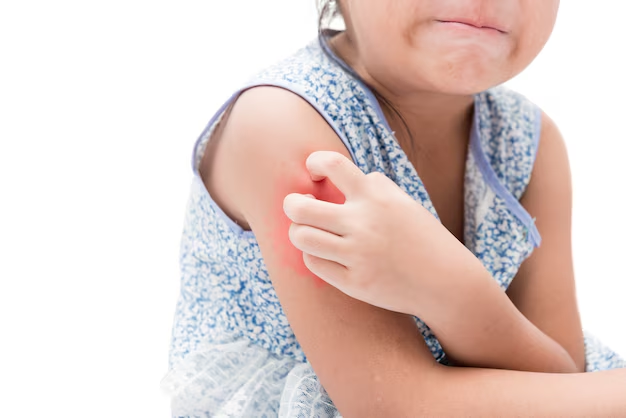Understanding Eczema: Effective Ways to Manage and Alleviate Symptoms
Managing a chronic skin condition like eczema can often feel overwhelming, as it involves various strategies and lifestyle adjustments. Eczema, also known as atopic dermatitis, affects millions worldwide and manifests through dry, itchy, and inflamed skin patches. Although there is no cure, there are many effective ways to manage its symptoms and improve skin health. Let's explore practical solutions to help you live more comfortably with eczema.
What is Eczema and How Does It Affect You?
Before exploring the treatment options, it's crucial to understand what eczema is. Classified as a chronic skin disease, eczema can cause significant discomfort, often affecting the quality of life. This condition is characterized by:
- Itchy and inflamed skin patches: These can vary in severity and may result in skin infections if scratched excessively.
- Dry skin: A key symptom that can exacerbate the itching and discomfort.
- Varying triggers: Environmental factors, stress, and certain allergens can provoke flare-ups.
Understanding these symptoms and potential triggers is the first step toward managing the condition effectively.
Identifying and Avoiding Triggers
One of the most proactive ways to manage eczema is by identifying and avoiding individual triggers:
Common Triggers
- Environmental allergens: Dust mites, pollen, and pet dander are frequent culprits.
- Harsh soaps and detergents: These can strip the skin of moisture, promoting dryness and irritation.
- Stress: Emotional stress can exacerbate eczema symptoms, leading to flare-ups.
- Dietary factors: Certain foods may cause allergic reactions or worsen eczema for some individuals.
Transitioning to Specific Coping Mechanisms
Once you identify your personal triggers, you can take targeted actions to minimize them. For example, using hypoallergenic detergents or engaging in stress-reduction techniques like yoga or meditation can help you better manage your eczema.
Moisturizing: A Key Component of Eczema Care
Keeping skin moist is vital for controlling eczema. Proper hydration helps rebuild the skin's barrier, reducing dryness and discomfort. Here’s how to choose the right moisturizers:
Types of Moisturizers
- Ointments and creams: These are thicker, offering more extended hydration than lotions and are generally more effective for eczema-prone skin.
- Fragrance-free products: To avoid additional irritation, select formulas that are hypoallergenic and free from perfumes or dyes.
Application Tips
- Apply immediately after bathing: Lock in moisture by applying a generous layer of moisturizer on damp skin.
- Consistency is key: Regular application, particularly after washing hands or bathing, is essential for preventing flare-ups.
Bathing Practices and Skin Care Routine
The way you bathe significantly impacts your skin’s health. Here are some recommendations:
Bathing Tips
- Limit bath time to 10-15 minutes in lukewarm—not hot—water, as prolonged exposure can dry out the skin.
- Use gentle, soap-free cleansers designed for sensitive skin.
Skin Care Routine
- Pat the skin dry with a soft towel after bathing, leaving a little moisture on the skin.
- Immediately follow up with a thick layer of moisturizer, focusing on vulnerable and affected areas.
Topical Treatments and Medications
In some cases, using topical treatments under a skincare regime is necessary to keep eczema in check. These options often require consultation with a healthcare provider but understanding their role can help guide your discussions.
Types of Topical Treatments
- Corticosteroid creams: Typically prescribed for reducing inflammation during flare-ups.
- Non-steroidal creams: These can be used when corticosteroids are not advisable and may include calcineurin inhibitors.
- Prescription moisturizers: When over-the-counter options are insufficient, specialized creams provide better hydration and repair.
Embracing a Holistic Approach
Aside from specific treatments and practices, a holistic approach to managing eczema involves lifestyle adjustments that contribute to overall skin health.
Diet and Nutrition
- Anti-inflammatory foods: Incorporating foods rich in omega-3 fatty acids, such as fish and flaxseeds, may help reduce inflammation.
- Stay hydrated: Drinking adequate water helps maintain skin hydration from the inside out.
- Monitor food triggers: Keeping a food diary can help identify any correlations between diet and flare-ups.
Stress Management
Stress contributes significantly to eczema flare-ups. Incorporate relaxation techniques like:
- Mindful meditation and yoga
- Regular exercise routines
- Pursuing hobbies and activities that provide relaxation and joy
The Importance of Clothing Choices
Comfortable, skin-friendly clothing can be vital in managing eczema symptoms. Here’s what you should consider:
Garment Selection
- Opt for soft, natural fabrics: Cotton is breathable and less likely to irritate the skin compared to synthetic materials.
- Avoid tight-fitting clothes that may chafe affected areas.
Seeking Professional Help
When self-care measures aren't enough, or if eczema severely impacts daily life, it's crucial to seek professional assistance:
Consulting Healthcare Providers
- Dermatologists: Specialists who provide tailored treatment plans to manage symptoms effectively.
- Allergists: If allergies trigger your eczema, working with an allergist can be invaluable for creating an effective management plan.
In cases of severe eczema, professional guidance ensures safety and can provide relief through advanced therapies, including systemic medications or phototherapy.
Closing Insights: Navigating Life with Eczema
Eczema's unpredictable nature often makes managing it a journey rather than a destination. By combining lifestyle modifications, identifying and avoiding triggers, practicing effective skin care, and consulting healthcare providers when necessary, you can significantly improve your quality of life.
Empower yourself with knowledge and a proactive approach to managing symptoms, enabling you to live comfortably and confidently, regardless of eczema's challenges.
Summary of Key Strategies for Managing Eczema
- 🧴 Moisturize Daily: Use thick ointments or creams, especially after bathing.
- 🛀 Adapt Bathing Habits: Use lukewarm water and gentle cleansers.
- 🧼 Avoid Triggers: Detect allergens, soaps, and stressors and reduce exposure.
- 👚 Choose Proper Clothing: Wear soft, breathable fabrics like cotton.
- 🤝 Seek Professional Help: Consult dermatologists or allergists for persistent issues.
- 🧘♀️ Manage Stress: Include relaxation techniques and self-care practices.

